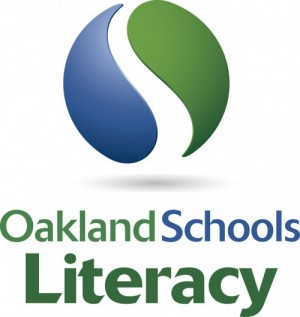 When May comes, and the green starts to overtake the landscape, and the purple lilacs send their sweet smell to my side door, I know that summer is near. When I was teaching, I usually would go through a series of states at this point:
When May comes, and the green starts to overtake the landscape, and the purple lilacs send their sweet smell to my side door, I know that summer is near. When I was teaching, I usually would go through a series of states at this point:
- Exhaustion from all the testing and planning and grading of essays and after-school ceremonies and concerts and plays
- Panic that I didn’t get through all of the required curriculum
- Regret that I didn’t give enough feedback to students or make enough emotional connections with some of my kids
- Great anticipation that summer was almost here and I could make it through these last five weeks and four Mondays
- Sadness (or sometimes Relief depending on the group of kids) that we only had a few weeks left together in my classroom
After running the gamut of emotions, I would try to regain some semblance of teaching dignity. This usually took the form of writing letters, as a classroom activity.
Two of my favorite types of activities were Letters to Your Future Self and Letters of Thanks to a Teacher. Neither assignment was very formal. I think I tried to tie in some sort of lesson on letter writing, just to keep it legit. Often the “grade” was based solely on completion of the assignment.
Over the years, I have collected lots of stationery and envelopes (even asking parents for donations at the beginning of the school year) and so I would pull out my box and let students choose their paper and favorite writing implement.
Sometimes, with the Letters to Your Future Self, I would include a stamped envelope and have students write: Do Not Open Until the Year 20XX on them, and have them address the letter to their home address (usually after a short tutorial on how to do this!). I would then mail the letters to students in the summer with a short note from me too!
Lasting Relationships
Letters of Thanks to a Teacher always brought about a lot of questions from students. Can I write to an elementary teacher? Sure – I can inter-school mail the letter to them. What about a custodian or lunch lady or counselor? Of course! How do you spell this teacher’s name?! (List of names goes up on the white board.) Can I write a letter to you? Well, only if you also write one to someone else too. Can I deliver it to the teacher now? Nope, I need to grade them first – so make sure I can read your signature! Can I write more than one? YES! I’m not finished, can I take it home for homework? Yes.
 I would have the students keep the envelopes open, so that I could “grade” them and also screen for any letter of bad intent (only one or two in the many years did this, but I’m glad I checked in the end).
I would have the students keep the envelopes open, so that I could “grade” them and also screen for any letter of bad intent (only one or two in the many years did this, but I’m glad I checked in the end).
The best part about Letters of Thanks to a Teacher came later, sometimes not until next fall, when I would catch my colleagues looking in their mailboxes, sometimes greeted by piles of letters from past students, thanking them for some aspect of teaching–or more often the relationship they had created.
The Importance of Gratitude
Giving students time in a full class period to write the letters in a leisurely and yet thoughtful way always made my students and me feel good. You could tell they were thinking about what they would say and how they would say it, and many of them would ask how to spell words and took care in their writing–more so than any other assignment they had worked on that year. This is the kind of forced assignment I didn’t mind giving or grading.
And what was I doing while they composed? Besides helping any student with their spelling or ideas, I was writing my own letters of gratitude to colleagues and friends who had helped me that year.
 Caroline Thompson (@TeacherThompson) taught middle school ELA for twelve years in Lake Orion before becoming a stay-at-home mom. She supports AARI teachers for Oakland Schools as an independent literacy consultant in the areas of digital media, professional development, and non-fiction resources. Caroline is a Reading and Writing Workshop advocate, a 2008 Oakland Writing Project Teacher Consultant, and a 2009 Oakland County Outstanding Teacher of the Year Nominee. She has a BA in English from Michigan State University and a Masters in the Art of Teaching Reading from Oakland University. She lives in Berkley with her husband and their two year old daughter.
Caroline Thompson (@TeacherThompson) taught middle school ELA for twelve years in Lake Orion before becoming a stay-at-home mom. She supports AARI teachers for Oakland Schools as an independent literacy consultant in the areas of digital media, professional development, and non-fiction resources. Caroline is a Reading and Writing Workshop advocate, a 2008 Oakland Writing Project Teacher Consultant, and a 2009 Oakland County Outstanding Teacher of the Year Nominee. She has a BA in English from Michigan State University and a Masters in the Art of Teaching Reading from Oakland University. She lives in Berkley with her husband and their two year old daughter.

